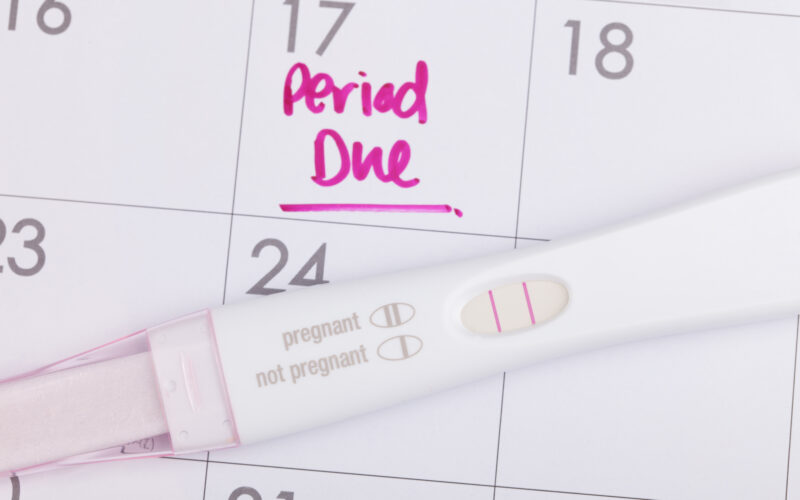The New York Times recently reported on a possible new medical intervention for women who may have unplanned pregnancies. Called “Missed Period Pills,” these drugs are abortion pills that healthcare providers can offer to patients who have missed a period and fear they may have become pregnant. Without knowing for sure if they are pregnant, patients who take Missed Period Pills are prescribed abortion pills to take to expel the contents of their uterus in a withdrawal bleeding that can appear to be a normal menstrual period.
What are Missed Period Pills?
The concept of Missed Period Pills was developed as an effort to provide early abortions to women who are uncomfortable with the concept of ending pregnancy. For women who believe abortion ends a life, taking Missed Period Pills could provide an extra layer of ambiguity as to whether they have had an abortion or not.
A survey exploring patient demand for Missed Period Pills published in the journal Contraception in September 2020, concluded, “If missed period pills were available in the United States, demand might be substantial and wide-ranging across demographic groups.” The New York Times reports, “One participant said that such a service would be ‘a psychological cushion’ for those women ‘who may be unsure of their own feelings on abortion.’ Another said that she thought it would result ‘in less moral conflict,’ and a third that she would feel ‘less guilty of my choice.’”
What ingredients do Missed Period Pills contain?
Missed Period Pills contain two main active ingredients: mifepristone and misoprostol.
The drug mifepristone blocks the effects of progesterone, a hormone necessary for maintaining pregnancy. After taking mifepristone, the lining of the uterus begins to break down. The drug misoprostol works by inducing contractions in the uterus and expelling its contents.
What are the side effects of Missed Period Pills?
The questionnaire surveying women’s interest in Missed Period Pills told participants that “the pills would be safe to take,” but could cause side effects “similar to those experienced by many women during menstruation.” Presumably, these refer to symptoms like cramping and bleeding. However, a closer look at the drugs mifepristone and misoprostol reveals the more significant and various side effects including those listed below.
Side effects of mifepristone
According to the Mayo Clinic, mifepristone could produce the following serious side effects requiring medical attention:
- excessively heavy vaginal bleeding
- unusual tiredness or weakness
- chest pain or discomfort
- confusion
- cough or hoarseness
- fast, weak pulse
- fever or chills
- lower back or side pain
- pain or discomfort in the arms, jaw, back, or neck
- painful or difficult urination
- pale, cold, or clammy skin
- shortness of breath
- sudden increase in stomach or shoulder pain
- sweating
Less serious side effects of mifepristone include abdominal pain, dizziness, headache, nausea or vomiting, anxiety, loss of strength, tightness in the chest, trouble breathing, among others.
Side effects of misoprostol
Also according to the Mayo Clinic, misoprostol could produce the following serious side effects that require medical attention:
- cramps
- heavy bleeding
- painful menstruation
- blurred vision
- confusion
- cough
- difficulty with breathing
- dizziness
- lightheadedness when getting up
- tightness in the chest
- unusual tiredness
- vomiting
The long list of side effects requiring medical attention continues with symptoms that include bloody nose, stool, or urine, body aches or pain, chest pain, confusion, difficulty urinating, breathing, moving, or swallowing, cough, fever, ear congestion, sore throat, and many others. Read the full list of serious side effects here and be sure to contact your doctor if you experience any.
Other less serious side effects of misoprostol include abdominal pain, bloatedness, excess air or gas in the stomach or intestines, depression, unexplained noise in the ears, hearing loss, hair loss, eyelid swelling, and other symptoms. Patients who are concerned about side effects from Missed Period Pills, mifepristone, or misoprostol, should contact their doctor.
Ethical concerns about Missed Period Pills
In addition to the ethical concerns Missed Period Pills share with other abortifacient* drugs, Missed Period Pills pose additional ethical problems for patients. First, while advocates of Missed Period Pills emphasize the convenience of sidestepping patients’ concerns with abortion, there is an element of informed consent that is obscured when a patient is given a drug without full knowledge of the exact function it is completing. Also, to expose patients to side effects and adverse health effects of abortifacient drugs, when they might not even have a pregnancy to terminate, raises numerous ethical problems regarding exposure to risk.
Further, the potential psychological benefits of keeping patients ignorant of whether the drug is ending a pregnancy are speculative based on patients’ survey responses; it remains unclear if after taking the abortifacient the patient may feel the same mixed feelings. Past surveys have found many women want to know if their contraceptives cause abortions. Further, it’s possible that some patients could later experience the mixed feelings that come with ending pregnancy, even when a pregnancy hasn’t in fact been ended.
Greater knowledge of fertility and menstrual cycles could help women worried about missed periods
For women who want to avoid pregnancy, learning to chart her menstrual cycle with a fertility awareness method (FAM) can provide more certainty whether intercourse could lead toward pregnancy and therefore greater agency in her reproductive health choices.
Further, some women may experience missed periods for reasons unrelated to pregnancy, such as longer menstrual cycles due to PCOS or another cycle dysfunction, or even stress. Charting with a fertility awareness method can help a woman identify the cause of her delay, and treat it with the help of a doctor trained in restorative reproductive medicine.
At Natural Womanhood, we believe that knowledge is power, and the more women know about what’s happening in our bodies, the more power we have to reach our physical and mental health, family-planning, and relationship goals. We also believe that the side effects of hormone-disrupting drugs expose women to unnecessary health risks that could be avoided with fertility awareness education.
*Abortifacient drugs are drugs that prevent the implantation of an embryo in the uterus. This is not an abortion per se, given that the medical definition of an abortion is the termination of a pregnancy, and the American College of Obstetricians and Gynecologists (ACOG) defines pregnancy as beginning after implantation. For more on the ethical implications of abortifacient drugs, click here.
Further reading:
Women Want to Know: Does the Pill Cause Abortion?
Can You Chart While on The Pill? Maybe, But It’s Complicated.







